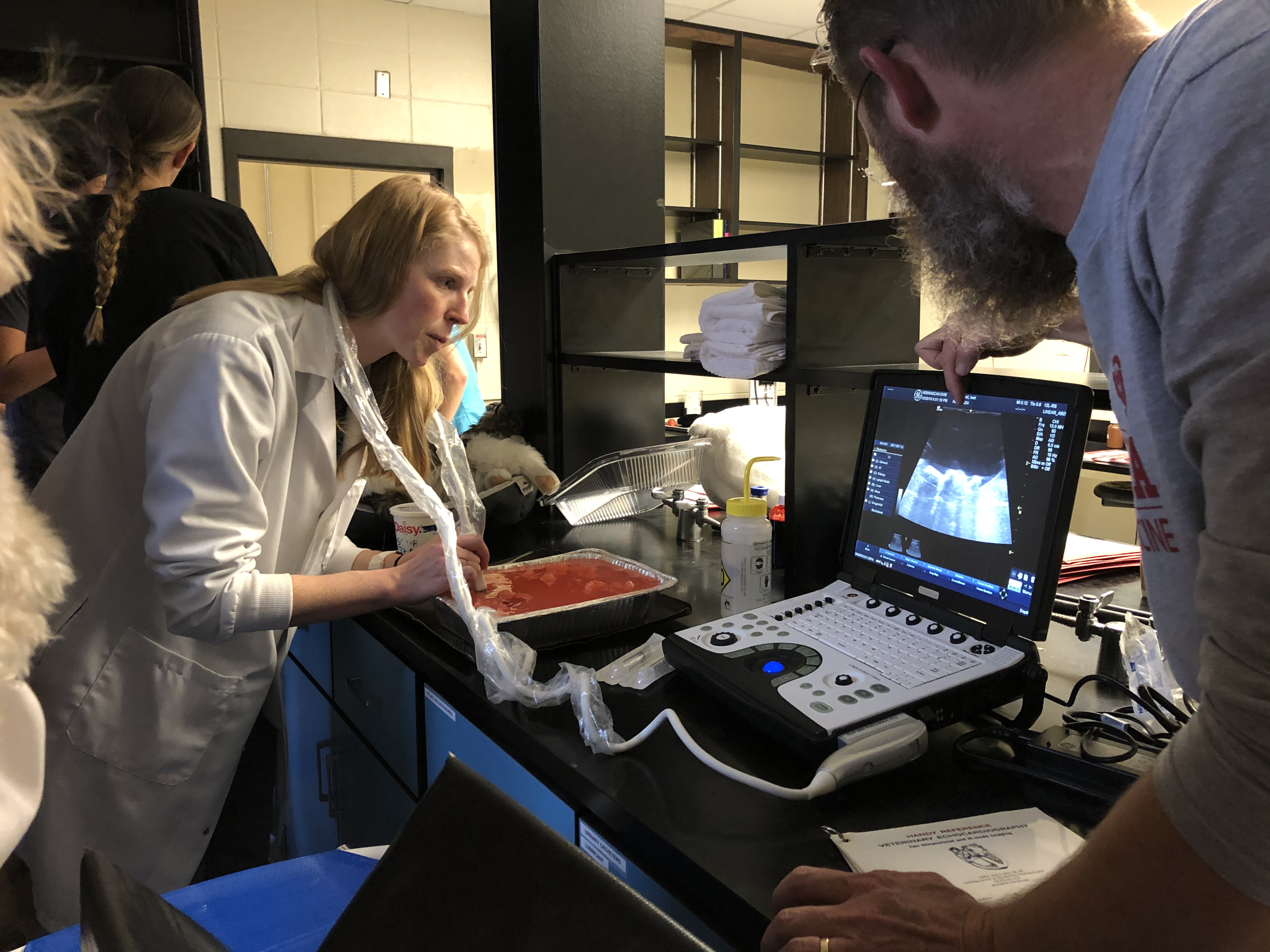
While she was a master’s student at Florida Atlantic University, University of Nebraska-Lincoln School of Natural Resources fisheries and wildlife alum Carolyn Hanish researched the accelerating effects that gopher turtles can have on cocoplum seed germination. More specifically, seeds that passed through the tortoises sped things up.
“Not only are they faster, but the tortoises are moving around the property (area that was researched), so they're moving away from the parent shrub, which is beneficial for colonizing new areas for the plant,” Hanish said.
When she first arrived at Florida Atlantic, she planned to research invasive geckos until her advisor asked if she was interested in looking at the tortoises he’d been researching for 14 years. She said heck yes. That interest in an array of animals has led her down a career path that she first considered when talking during her undergrad years with UNL SNR advising coordinator Sara Winn. Hanish is now midway through Nebraska's Professional Program in Veterinary Medicine, a four-year program in which she spends two years of veterinary medicine education at UNL and then transfers to Iowa State University’s College of Veterinary Medicine for the final two years, while still paying in-state tuition. She’s completing the first half of the program in Lincoln currently, and has learned about and worked on cattle, horses, cats, dogs and exotic animals like sugar gliders, hedgehogs and snakes, too.
Hanish said that becoming a veterinarian is in line with the interests that led her to the fisheries and wildlife program as an undergrad, and wanted to share her experience so current undergraduate students who might be considering the career path, or who are looking for a career path to consider.
When did you first consider becoming a veterinarian?
I think I wanted to be a wildlife vet when I first met Sarah Winn. Hearing about all the -ologies that the School of Natural Resources had involvement with, like herpetology and ornithology and mammology really got me excited about working with animals. I don't think I considered veterinary medicine very seriously when I was an undergrad. I really like this path. It's a lot of what I think students in the fisheries and wildlife degree program would want to do -- working with your hands and working with animals directly. I kind of always put veterinary school to the side, thinking that I wanted to work with animals on a population level. But when I got (to vet school), I realized you could do that in a lot of ways, either through conservation veterinary work or through large animal veterinary work.
You were on a PhD-teacher track with your master’s program. What led you to make the decision to become a veterinarian instead?
I was doing my masters and one of my friends was working at the clinic as a vet assistant. Hearing what she would do for work every day got me interested, I think. I was a little burned out on academia at the time, because writing a thesis was really difficult for me. I'm not really good at the tasks that don't have solid due dates. I wanted more hands-on work. So I started working at a vet clinic, and that's where I fell in love with it. Everything that came through the door was something different.
How has your experience in the program been so far?
Absolutely fantastic. Since it is the two-plus-two program, the class size is very small. You know the teachers very well, and they're very helpful. And they really care about the students. You're not lost in a big class. And they still do everything they can to give you all the opportunities you'd have at a large school. I feel like it's even more beneficial.
There's an opportunity for anything if you're willing to do it, which is nice. Through the school and through the club activities that they have, you can do anything that you've thought of. I'm always trying to find new things to do, so I did heifer insemination cervical exams, which I never would have thought of doing before. I never had an ag background, so this is sort of new to me.
What do you want current SNR undergrads to know about the veterinary program?
My biggest emphasis is that there are a heck of a lot of opportunities with this degree. You can work with large animals. You can work with small animals. You could do USDA food inspections. There are just quite a lot of opportunities for employment that I hadn't thought about before I started school. And there's private sector work too. This is definitely a breath of fresh air, and a difference in opportunities.
- Cory Matteson, SNR Communications